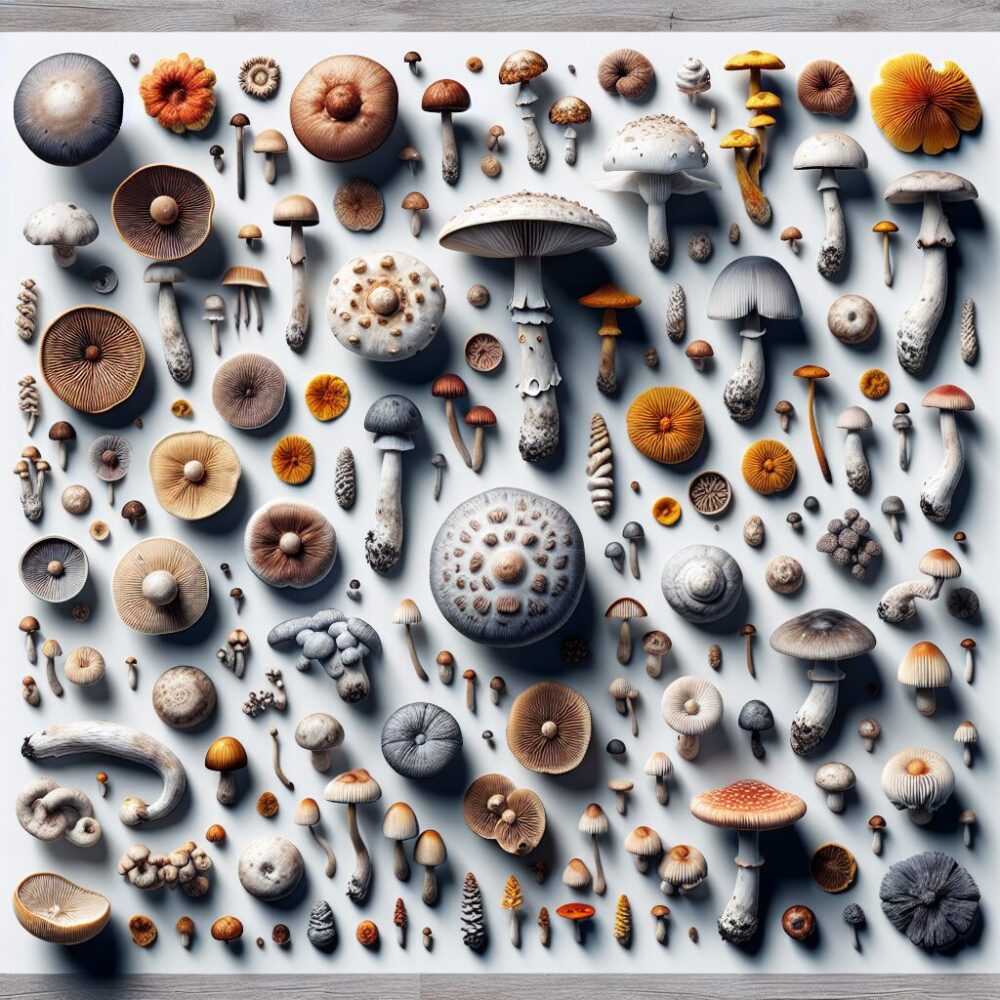10 lesser known facts about mushrooms
Fungi are one of nature's most mysterious and diverse life forms. While we usually think of these wonderful gifts at the table or while walking in the forest, mushrooms actually hide much more than meets the eye. Here are ten lesser-known facts about mushrooms that might surprise you!

1. Mushroom empire
Unlike plants and animals, fungi are a unique group that are evolutionarily closer to animals than to plants.
2. Biggest organism on the planet
The largest organism in the world is a mushroom - more specifically, the honey fungus (Armillaria ostoyae) in the state of Oregon, USA. This mushroom covers about 9.1 square kilometers and is believed to be over 8,000 years old!
3. Glowing mushrooms
Some mushrooms can glow in the dark. This process is called bioluminescence. For example, the bitter oyster (Panellus stipticus) spores glow green.
4. Mushrooms in space
Scientists have taken mushrooms into space to study their behavior in microgravity. Research shows that fungi can survive and even grow in space conditions.
5. Mushroom telepathy
Mycelium can transmit chemical signals that allow fungi to "communicate" with each other. These signals can help fungi find food and even warn other fungi of danger.
6. Mushroom paper
Some mushrooms, such as the kombucha mushroom, produce cellulose that can be used to make paper. Kombucha paper is a durable and biodegradable alternative to regular paper.
7. Antibiotics from mushrooms
Many antibiotics, including penicillin, were originally isolated from fungi. Penicillin, discovered by Alexander Fleming in 1928, comes from molds Penicillium rubens.
8. Absorption of radioactivity
Some fungi can absorb and neutralize radioactivity. For example, in the Chernobyl region, mushrooms have been found that grow in radioactive areas and can bind radioactive substances.
9. Zombie mushroom
Ophiocordyceps unilateralis is a fungus that infects ants and manipulates their behavior. The infected ant climbs high under the leaf and attaches itself where the fungus eventually kills the ant and begins spreading the spores.
10. Plastic decomposers
Some mushrooms like Pestalotiopsis microsporacan break down plastic. This discovery could help alleviate the problem of plastic pollution, as fungi are able to break down plastic in environments without oxygen, such as landfills.
Mushrooms are truly a wonder of nature that offer us endless joy of discovery and practical applications. The next time you see a mushroom under the forest, take a moment to think about their amazing properties - you never know what other secrets they may be hiding!
If you want to read how the mushroom products we offer can surprise you, you will find more information reishi, cordyceps, lion's mane ja 4 mushroom complex pages.